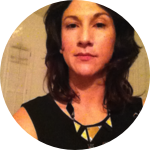About This Project
WHERE IS DANIEL? Daniel is sent on a mission to go underground at a site in Tulsa Oklahoma to retrieve some equipment that is toxic to the brain but is harmless to the body. For safety, Daniel agrees to have his brain removed from his body and placed in a glass jar in Houston Texas. The neurons in his brain are set up to communicate long-distance with the nerves in his body by signals much like the ones in cell phones. [From Daniel Dennett's "Where Am I?"]
Ask the Scientists
Join The DiscussionWhat is the context of this research?
Does engaging in philosophical inquiry improve kids' scores on various critical thinking tasks? In this study, we will meet with groups of middle-schoolers once a week for 10 weeks, to have philosophy discussions using the Philosophy for Children method. In this method, a facilitator presents a stimulus to a group of kids (a video clip, a passage from a story, a picture, etc.) and the kids choose a discussion question based on the stimulus. They then take turns to make contributions to the discussion, calling on one another and giving labels to their contributions (e.g., "hypothesis", "reason", "analogy", "distinction", "clarification request", "supporting example", "counter-example"). The students will be given critical thinking tests before and after the 10-session program. Their scores will be compared with those of a control group.
What is the significance of this project?
“If you’re not prepared to be wrong, you’ll never come up with anything original. And by the time they get to be adults, most kids have lost that capacity. They have become frightened of being wrong” [Sir Ken Robinson from his TED 2006 talk]. Kids are naturals at playful exploration, which is a key to original thinking, openness to alternative hypotheses, and collaborative problem solving. These three capacities are at the heart of philosophical inquiry. Instead of nurturing children's natural tendency for playful exploration, our nation's public schools teach them to consider only one answer (THE answer) across all subjects in the curriculum. We suspect that performance in all subjects would benefit from philosophical discussion, in that it enhances critical thinking and emphasizes the importance of exploring multiple working hypotheses. The new Common Core State Standards are aimed at the education and assessment of critical thinking. The trouble is, nobody knows how to teach or assess critical thinking. Our group's research will help carve out methods for this. Our team is led by Philosopher and Cognitive Scientist Dr. Iris Oved. Over the last 10 years, she has been studying exploratory learning in children, scientists, and robots. Recently she has being designing and piloting programs for facilitating philosophical inquiry in children to nurture their natural, scientist-like exploratory learning.
What are the goals of the project?
The funds raised here will be used to pay for Dr. Oved and her group to create stimuli to inspire philosophical discussion in middle-schoolers, to facilitate the discussions in middle-school classrooms and after-school programs, and to design and carry out a pilot study on 60 kids (30 test and 30 control) to measure the effect of philosophical discussion on critical thinking.
Budget
The budget will be used to allow Dr. Oved to work half-time on this project for 3 months, for 3 of her student assistants to work for a total of 40 hours at $15/hr, supplies, and transportation.
Meet the Team
Affiliates
Team Bio
For my PhD I studied concept acquisition (category learning) at one of the top Philosophy and Cognitive Science institutions in the world. I then did a postdoctoral fellowship in Cognitive Robotics, where I helped to implement my theory of concept acquisition in softbots and robots that explore their worlds in much the way that children and scientists do. This work has inspired me to create a philosophy for children center (paradoxcenter.org) to help bring exploratory learning to public education. I hope soon to move into childhood education full-time.Iris Oved
For my PhD I studied concept acquisition (category learning) at one of the top Philosophy and Cognitive Science institutions in the world. I then did a postdoctoral fellowship in Cognitive Robotics, where I helped to implement my theory of concept acquisition in softbots and robots that explore their worlds in much the way that children and scientists do. This work has inspired me to create a philosophy for children center (paradoxcenter.org) to help bring exploratory learning to public education. I hope soon to move into childhood education full-time.
Additional Information
A Lego Escher Castle built by some of my students:
Like many of Escher's drawings, the castle depicts a kind of paradox. To me, every interesting question (philosophical, scientific, mathematical, ...) can be framed as a paradox, and paradox appreciation is what I really want to spread.
Project Backers
- 26Backers
- 9%Funded
- $1,255Total Donations
- $48.27Average Donation
